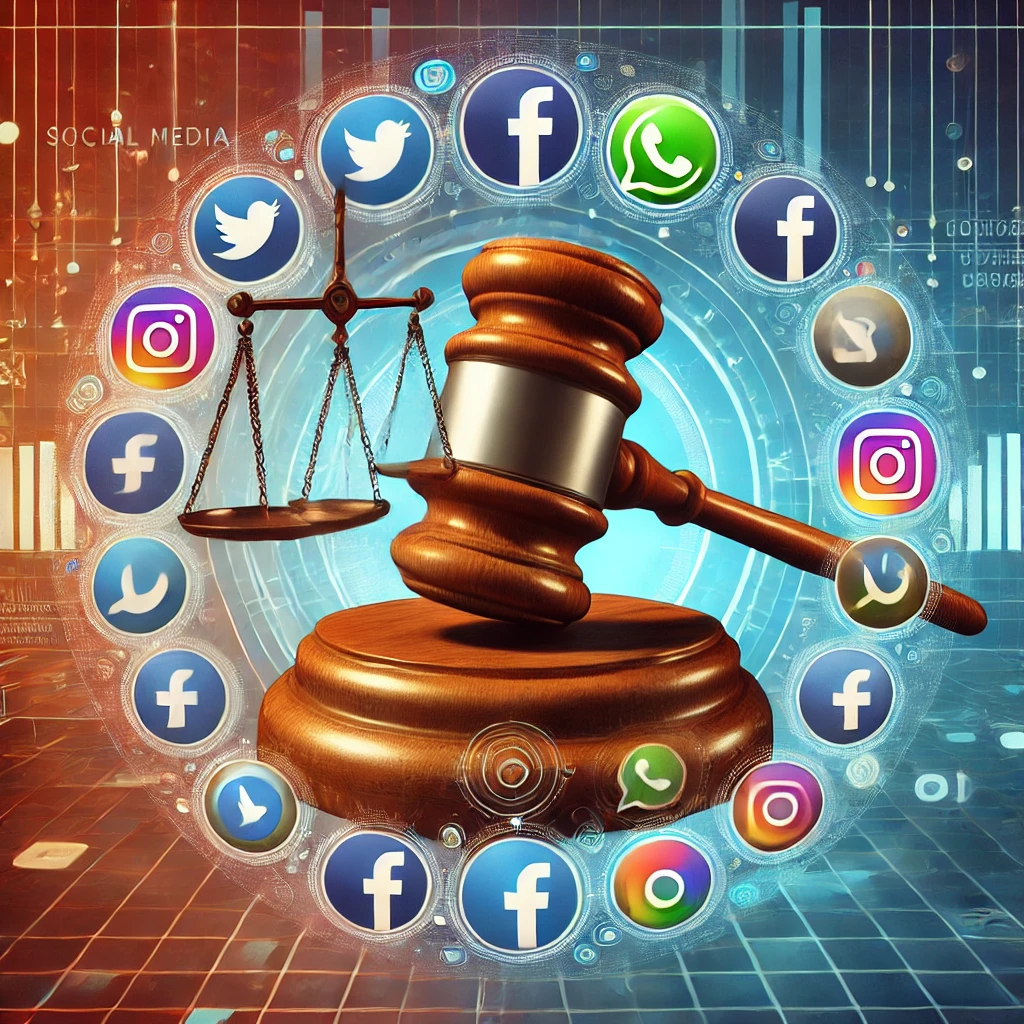
Social Media and the Judiciary: Key Developments
The Indian judiciary has recently addressed several pivotal issues concerning social media usage, emphasizing the balance between freedom of expression and the need to prevent misuse. Below is an overview of notable cases and rulings:
1. Forwarding Objectionable Messages on WhatsApp
Case: Dnyaneshwar Rohidas Wakale v. The State of Maharashtra
Court: Bombay High Court
Date: October 2024
Summary: The Bombay High Court deliberated on whether forwarding objectionable messages on WhatsApp constitutes an offense under Sections 295A and 153A of the Indian Penal Code, which pertain to deliberate acts intended to outrage religious feelings and promoting enmity between different groups, respectively. The court observed that while individuals should exercise self-restraint in forwarding messages on social media platforms, each forward cannot automatically be interpreted as intending to create societal unrest. This underscores the importance of context and intent in such cases.
2. Misuse of Live-Streamed Court Proceedings
Case: Dr. Vijay Bajaj v. Union of India and Others
Court: Madhya Pradesh High Court
Date: November 2024
Summary: Addressing the unauthorized editing and sharing of live-streamed court proceedings on social media platforms, the Madhya Pradesh High Court issued an interim order restraining individuals and media agencies from such activities. The court emphasized that such misuse undermines the justice delivery system and directed the removal of all videos, shorts, and reels that violate the Madhya Pradesh Live-Streaming and Recording Rules for Court Proceedings, 2021.
3. Social Media as a Pillar of Democracy
Case: [Case Name Redacted]
Court: [Court Name Redacted]
Date: [Date Redacted]
Summary: The court acknowledged that social media has become a powerful medium for exchanging views and expressing opinions, thus serving as an important pillar of democracy. However, it cautioned against the misuse of these platforms for posting remarks that could constitute an offense or fall within the prohibited zone under Article 19(2) of the Constitution, which allows for reasonable restrictions on free speech. The court highlighted the need for a balance between healthy use and preventing misuse of social media.
4. Unauthorized Streaming of Court Proceedings
Case: Advocates’ Association Bengaluru v. Union of India
Court: Karnataka High Court
Date: September 2024
Summary: The Karnataka High Court issued an interim order restraining digital media platforms, including YouTube, Facebook, and Twitter, from live streaming court proceedings without authorization. The court directed the immediate removal of such content, emphasizing adherence to the Karnataka Rules on Live Streaming and Recording of Court Proceedings, 2021. This ruling aims to prevent the unauthorized dissemination of court proceedings, ensuring that judicial processes are not misrepresented or misused.
5. Right to Be Forgotten
Case: XXX v. India Today Group
Court: Delhi High Court
Date: August 2024
Summary: The Delhi High Court invoked the “right to be forgotten” in favor of a plaintiff seeking the removal of certain content from social media platforms. The court observed that the right to freedom of expression must yield to the right to privacy, especially when the individual has been exonerated of all allegations. This decision underscores the judiciary’s recognition of the right to be forgotten as an essential facet of the right to privacy in the digital age.
6. Protection of Victim Identity on Social Media
Case: Kinnori Ghosh and Anr. v. Union of India & Ors.
Court: Supreme Court of India
Date: September 2024
Summary: The Supreme Court ordered the immediate removal of content from social media platforms that disclosed the identity of a deceased victim. The court emphasized that such disclosures violate established guidelines and infringe upon the dignity and privacy of the victim and their family. This ruling reinforces the importance of protecting victim identities in the digital realm.
7. Amendments to IT Rules and Free Speech
Case: Kunal Kamra v. Union of India
Court: Bombay High Court
Date: December 2024
Summary: The Bombay High Court delivered a split verdict on pleas challenging the constitutional validity of certain amendments to the Information Technology (Intermediary Guidelines and Digital Media Ethics Code) Rules, 2021. The petitioners, including stand-up comedian Kunal Kamra, argued that the amendments could lead to censorship and violate the right to free speech. The split verdict indicates differing judicial perspectives on the balance between regulation and freedom of expression in the digital space.
8. Trademark Infringement on Social Media
Case: Play Games24x7 Private Limited v. https://rummytu.in
Court: Delhi High Court
Date: January 2025
Summary: The Delhi High Court restrained the defendants from using the trademark “RUMMYCIRCLE” or any similar trademark/domain name/logo on their websites, social media platforms, or any other medium. The court held that such usage amounted to infringement of the plaintiff’s registered trademark and passing off their goodwill and reputation. This ruling highlights the judiciary’s stance on protecting intellectual property rights in the digital domain.
9. Defamation and Social Media Posts
Case: Gujarat Cooperative Milk Marketing Federation Limited v. Deepa Devi & Ors.
Court: Delhi High Court
Date: July 2024
Summary: The Delhi High Court directed the removal of social media posts claiming the presence of a dead insect in “Amul” ice cream. The court observed that such posts could harm the plaintiff’s reputation and goodwill, especially when the claims are unverified. This case underscores the need for responsible behavior on social media platforms and the legal consequences of defamatory content.











comments